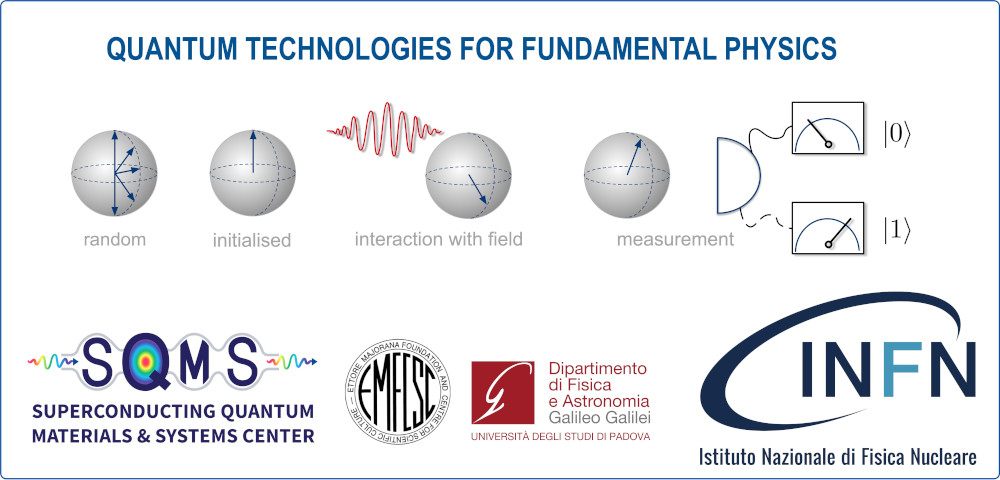Conveners
Quantum Computation and Simulation: Session 1
- Doga Kurkcuoglu (Fermilab)
Quantum Computation and Simulation: Session 2
- Hank Lamm (Fermilab)
Quantum Computation and Simulation: Session 3
- Massimo Palma (Universita' di Palermo)
We start from a description of the current challenges in quantum computing for simulation and quantum hardware control in view of applications in HEP. We discuss the role of middleware development for quantum computing. We describe recent applications of quantum computing to high-energy physics for parton distribution functions determinations and Monte Carlo simulation. We conclude by...
We present quasiprobability methods that are aimed at effectively reducing or tailoring the quantum noise present in the output of noisy hardware simulations. These methods rely on a tomographic characterization of noisy quantum channels and then proceed by decomposing the desired quantum channels in terms of the noisy implementable ones. We discuss applications of these techniques to quantum...
There are many directions to explore in fundamental physics. I will tell why quantum gravity is the most promising and urgent, and will point to specific theoretical open issues, related to black hole entropy, that need to be settled with an experiment. This can eventually open the doors to the next era.
Then I will discuss why this program can be pursued by using equivalences between...
In the past few years we have witnessed a growing interest computational paradigms beyond the gate paradigm. Among these Extreme learning machines and Reservoir computers are two particularly interesting new computational paradigms. They key feature is the use of a fixed, nonlinear dynamics to efficiently extract information from a given dataset. Such goal, in the classical scenario, is...
The development of optical quantum technologies allows for quantum-enhanced metrology, secure quantum communication, and quantum computing and simulation in highly increased dimensions. Maturing quantum photonics requires efficient generation and detection of single photons, as well as their scalable manipulation. We merge highly efficient multi-photon sources and integrated waveguide...
In this talk I will outline a novel approach to quantum mereology based on minimal information scrambling. Generalized quantum subsystems are defined by pairs of von Neumann algebras and their scrambling in terms of an Algebraic Out of Time Order Correlation (A-OTOC) function. The short time expansion of the A-OTOC allows one to define a notion of Gaussian Scrambling rate. The latter has a...
Several quantities of interest in physics are non-linear functions of the density matrix and cannot, even in principle, correspond to proper quantum observables. Any method aimed to determine the value of these quantities should resort to indirect measurements and thus corresponds to a parameter estimation problem whose solution, i.e. the determination of the most precise estimator,...

